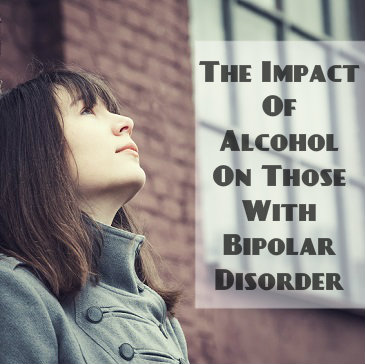What’s Alcohol’s Impact On Those Who Are Bipolar?
Individuals with a mental disorder often have a co-existing condition, such as depression, anxiety, or often, a substance use disorder. Alcohol or drugs are frequently used to medicate the symptoms of a mental disorder. But the presence of a substance use disorder can make treatment more complicated and can delay the reduction in symptoms.
Altered Mismatch Negativity
 In an article appearing in Clinical Psychiatry News, researchers in Australia examined the impact of risky alcohol consumption among those with bipolar disorder, as compared with nondrinkers. The study found that there was a phenomenon known as “altered mismatch negativity” on electroencephalography (EEG) exams among those with risky drinking histories.
In an article appearing in Clinical Psychiatry News, researchers in Australia examined the impact of risky alcohol consumption among those with bipolar disorder, as compared with nondrinkers. The study found that there was a phenomenon known as “altered mismatch negativity” on electroencephalography (EEG) exams among those with risky drinking histories.
According to the article, mismatch negativity is the brain’s automatic electrical activity that responds to auditory stimulation when there is a change in sounds. When there is a reduction in mismatch negativity, it indicates an impairment of NMDA-receptor activation. The NMDA receptors were already thought to be impacted by both alcohol use and in patients with bipolar disorder.
To measure the mismatch negativity in individuals with risky alcohol use and bipolar disorder, the researchers recruited 42 bipolar disorder patients and 34 control subjects. The participants were between the ages of 16 and 30. The participants were subjected to EEG exams with auditory stimuli.
Among the participants, 16 bipolar patients engaged in risky alcohol-related behaviors, as well as 14 of the control subjects. Of the remaining patients, 26 of the bipolar subjects and 20 of the control subjects did not engage in risky drinking.
Misuse Of Alcohol In Those Who Are Bipolar
The researchers found that the misuse of alcohol was a strong predictor of attenuations in mismatch negativity. The effect was significantly more profound among those diagnosed with bipolar disorder. The researchers believe that the alcohol may play an antagonistic role on the NMDA/glutamatergic system. This is consistent with the growing use of glutamatergic agents to treat bipolar disorder. Limiting alcohol consumption may be an important step when beginning treatment with glutamatergic agents.
The article notes recent studies showing that bipolar males between the ages of 20 and 30 have the highest weekly substance use. In more general terms, those who are diagnosed with bipolar disorder before adulthood have lifetime alcohol use rates of up to 70 percent.
The researchers note multiple potential limitations on their findings. For instance, the youths included in the study are not able to legally buy alcohol in Australia, so the underage drinkers may have had incentive to understate drinking behavior.
The study adds to the body of evidence that shows that bipolar disorder patients are particularly susceptible to the dangers of risky alcohol consumption.
Discover Why Integrating Medical And Mental Health Treatment Is Crucial



